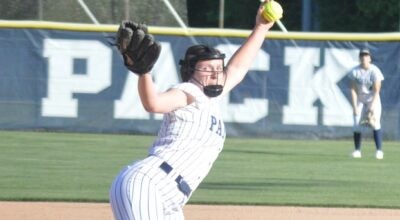STEPPING UP: My Take — NBA’s one-and-done rule deterimental to college basketball
Published 12:00 pm Wednesday, March 26, 2014
Athletes who have obtained elite or top-tier basketball ability are commonly said to be graced with the “Golden Ticket,” drawing a comparison to Willy Wonka’s storybook accolade. The ticket does not necessarily denote automatic success at the NBA level, but the cool, easy and guaranteed six- to seven-figure rookie contact awarded to the player by an NBA team willing to take a risk on an underdeveloped athlete.
In 2005, Commissioner David Stern executed an age limit requiring players to be at least 19-years-old or have completed their first year of college in order to be eligible for the league. Since its implementation, the decision to play just one year of college basketball and declaring for the NBA draft has been a popular option among premier college basketball players.
However, its success rate is low, and while the opportunity may seem like a tantalizing option in the short-term, it’s hardly a real life “Golden Ticket.”
Locally, players like Shawne Williams, a graduate of the Laurinburg Institute and a common sight at Washington’s Oakdale Park, went the one-and-done route, leaving the University of Memphis after his freshman year. Williams, who was a first-round draft pick in 2006, has played for five different NBA teams in eight years in the league. While he’s made about $13 million as a utility player over his career, he never lived up to the first-round expectations, and has consistently had trouble with the law, including three arrests.
His time in the NBA seems to be coming to an end. One must ask the question: what if he stayed at Memphis for another three years? Not only would he have earned a free college degree (most likely), but also extra time under renowned coach John Calipari, which might have allowed him to further grow as a basketball player. Even if his game didn’t improve, his degree would allow him to maintain a productive and stable quality of life after his stint in the NBA is up. For a high-profile athlete to stay in college for the extra three years, their degree acts as an insurance policy – free of charge – where regardless of whether he sustains an injury in college, struggles in the NBA or becomes the next LeBron James, he’s covered.
Another factor to consider is the scholarship money a one-and-done athlete receives. Sure, Duke University’s Jabari Parker has made his school hundreds of thousands of dollars, maybe even millions, but he’s also taken scholarship money away from a student whose sole focus is to graduate. For that individual or for other individuals who maybe can’t afford to attend Duke, that scholarship is their “Golden Ticket.”
As more and more players choose the one-and-done route, the NCAA will continue to misuse scholarships on players who have no intention of graduating. And besides, a one-and-done basketball player whose future is a sea of dollar signs can afford to pay back his loans. Right?





